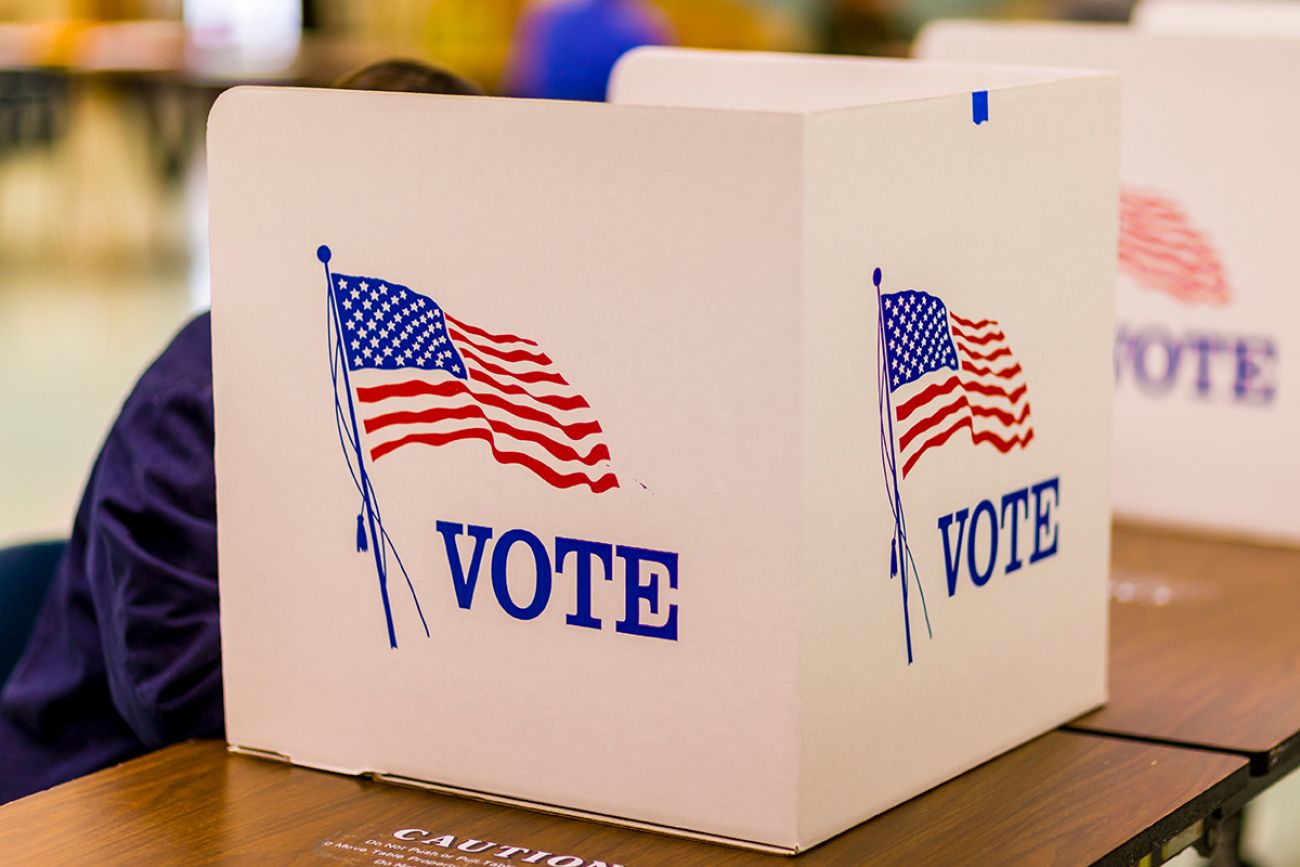Proposal 2 wouldn’t let Michigan prisoners vote, despite claims in mass texts

- Proposal 2 wouldn’t allow prisoners to vote, despite claims in a mass text
- The state Supreme Court recently ruled that the measure wouldn’t nullify other parts of the state constitution
- The texts were funded by a conservative super PAC
Nov. 9, 2022: Michigan Proposals 1 and 2 passed handily by voters Tuesday
This week, Michigan residents received mass text messages warning that the Proposal 2 voting rights ballot measure on the Nov. 8 ballot would allow "murders, rapists and incarcerated felons” to vote.
That’s not exactly true.
While Proposal 2 would allow nine days of early voting, expand access to absentee voting and continue to allow people to vote without an ID after signing an affidavit attesting to their identity, it says nothing about changing a current state law that bars prisoners from voting.
Related:
- Voting rights ballot measure: What Proposal 2 would change in Michigan
- Proposal 1 Michigan: What term limits ballot measure would do
- Proposal 3 Michigan: What abortion ballot measure would do if passed
- Michigan’s Guide to Elections 2022
So what gives?
While the text — and others like it that are making the rounds — is technically accurate in claiming that murderers and rapists would be allowed to vote if Proposal 2 passes, that’s only because they are already allowed to vote as long as they aren’t currently in prison.
The texts were funded by a political action committee, Protect MI Voter ID, which was formed Sept. 8, and does not have to file a campaign finance report until Oct. 28. The group’s treasurer is Virginia-based political agent Dustin McIntyre. He also runs True Michigan PAC, a conservative super PAC funded by out-of-state interests.
McIntyre did not respond to Bridge Michigan’s request for comment regarding the text message.
Michigan-based Republican consultant Jamie Roe wasn’t involved in the text message but works on Secure MI Vote, a competing measure that would enhance voting security laws but did not make the ballot.
He said Proposal 2 is concerning because of its language declaring a “fundamental right to vote, without harassment, interference, or intimidation."
Roe said he fears that means would nullify a section of the constitution that allows the “Legislature (to) … exclude persons from voting because of mental incompetence or commitment to a jail or penal institution.”
"If we can't create any law to restrict someone's fundamental right to vote, that would include convicted and incarcerated rapists and murderers," Roe argued to Bridge Michigan on Wednesday.
But that issue has already been litigated and dismissed, according to Khalilah Spencer, board president of Promote the Vote 2022, which helped push Proposal 2.
“The Michigan Legislature has barred otherwise eligible voters who are incarcerated and serving a sentence from voting. Proposal 2 does nothing to change that,” Spencer told Bridge in a statement.
The same concerns raised by Roe prompted the State Board of Canvassers' to deadlock on approving the voting measure.
The state Supreme Court ordered Proposal 2 onto the ballot, writing that "the proposed amendments would not abrogate any of the constitutional provisions identified."
A separate Michigan law also bars voting for people “legally convicted and sentenced for a crime for which the penalty imposed is confinement in jail or prison.”
Michigan allows those who have criminal records but aren’t incarcerated to vote, as well as those on parole or probation. People in jail or prison awaiting trial or a conviction may also register to vote so long as a judge or jury has not yet sentenced them.
Additionally, current Michigan law allows registered sex offenders to vote at a school if that is their designated polling place.
Maine, Vermont and Washington, D.C., allow felons to vote even when they are incarcerated.
Michigan is like 20 others where voting rights are returned after prisoners are released, while 11 states indefinitely suspend felon’s rights for certain crimes unless they receive a pardon, according to the National Conference of State Legislators.
See what new members are saying about why they donated to Bridge Michigan:
- “In order for this information to be accurate and unbiased it must be underwritten by its readers, not by special interests.” - Larry S.
- “Not many other media sources report on the topics Bridge does.” - Susan B.
- “Your journalism is outstanding and rare these days.” - Mark S.
If you want to ensure the future of nonpartisan, nonprofit Michigan journalism, please become a member today. You, too, will be asked why you donated and maybe we'll feature your quote next time!




